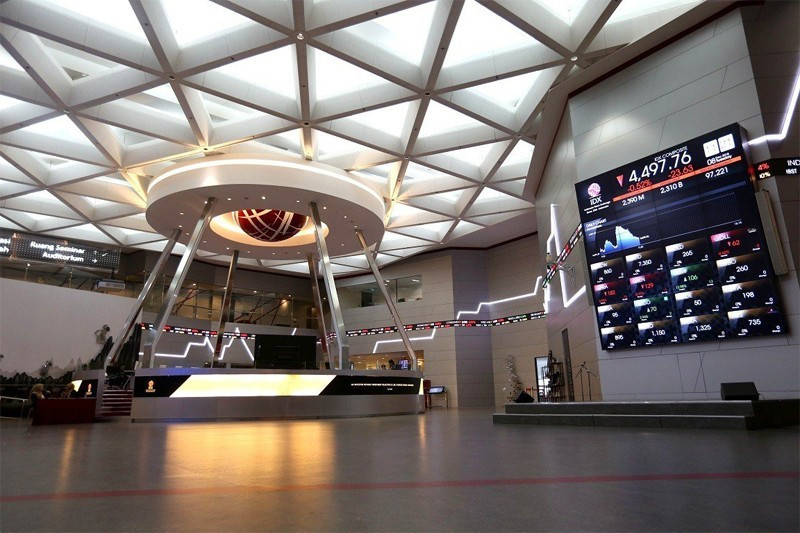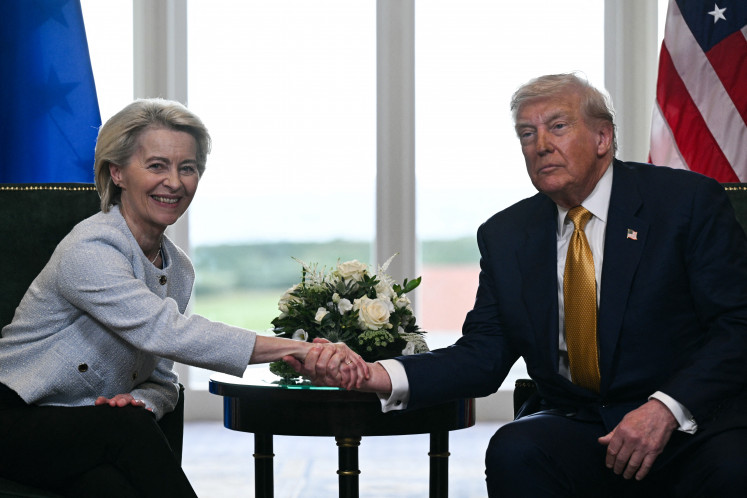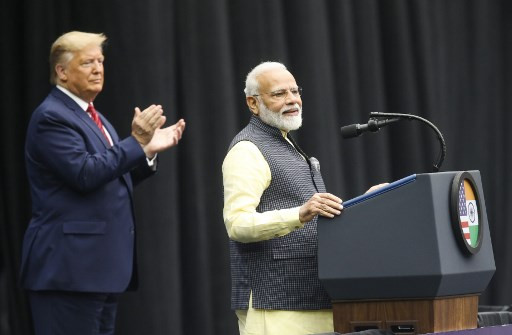Popular Reads
Top Results
Can't find what you're looking for?
View all search resultsPopular Reads
Top Results
Can't find what you're looking for?
View all search resultsIDX Composite drops below 7,500, declines for third day
The IDX Composite index fell for the third consecutive day on Friday, closing below 7,500, seeing a 0.63 percent drop.
Change text size
Gift Premium Articles
to Anyone
T
he Indonesia Stock Exchange (IDX) Composite index fell for the third consecutive day on Friday, dropping 0.63 percent or 47.74 points to close at 7,496.09.
Eight sectoral indices dragged the index into the red on Friday.
The technology sector plunged by 2.34 percent, while property and real estate dropped by 1.36 percent. The consumer discretionary sector fell by 0.78 percent, financials slipped by 0.73 percent, and transportation and logistics declined by 0.73 percent. Furthermore, industrials went down by 0.49 percent, basic materials weakened by 0.24 percent, and consumer staples dropped by 0.18 percent.
Meanwhile, three sectors managed to rise amid the IDX Composite’s decline. The healthcare sector advanced 0.5 by percent, infrastructure gained 0.11 percent and energy edged up 0.09 percent.
Top LQ45 gainers on Friday were PT Medco Energi Internasional (MEDC), adding 3.65 percent, PT Perusahaan Gas Negara (PGAS), up 2.74 percent, and PT Pertamina Geothermal Energy (PGEO), rising by 2.23 percent.
Meanwhile, the top losers were PT GoTo Gojek Tokopedia (GOTO), down 6.25 percent, PT Mitra Adiperkasa (MAPI), falling by 4.34 percent, and PT Bank Jago (ARTO), dropping by 4.07 percent.
The total trading volume reached 25.36 billion shares, with a transaction value of Rp 11.9 trillion (US$764.68 million). Based on trading data, 333 stocks declined, 234 gained and 225 remained flat.
The IDX Composite has fallen 2.61 percent over the past week but gained 3.07 percent year-to-date.
The global market is beset with the rising tensions in the Middle East, with the Israel conflicts against Hezbollah and Hamas resistance groups potentially expanding to Iran. The conflicts may cause disruptions to global supply chains, particularly impacting oil prices.
Meanwhile, China’s government and monetary authorities have introduced significant stimulus measures to support the economy. This has drawn market attention, as it could slow the flow of investments into emerging markets, including Indonesia’s financial sector.
Rudiyanto, director of Panin Asset Management, highlighted that these global issues are already affecting domestic markets, though the impact of China’s stimulus is expected to be short-lived.
Despite these challenges, the IDX Composite index is predicted to continue strengthening, potentially reaching 7,900-8,000 by the end of the year and climbing to 9,000 in 2025.
Similarly, the rupiah’s potential for appreciation remains positive in 2024, bolstered by expectations of a United States Federal Reserve interest rate cut. The rupiah could end the year between Rp 15,100 and Rp 15,500 against the greenback.










